Question And Answer
Publications
Articles, publications, books, tools and multimedia features from the U.S. Institute of Peace provide the latest news, analysis, research findings, practitioner guides and reports, all related to the conflict zones and issues that are at the center of the Institute’s work to prevent and reduce violent conflict.
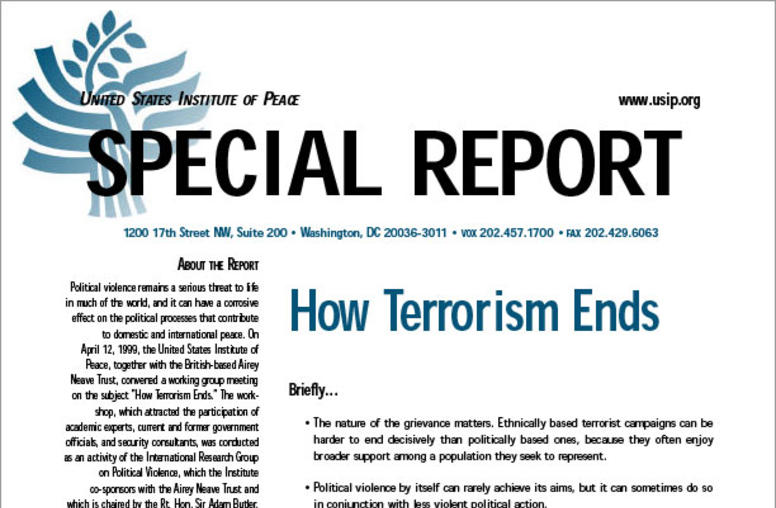
How Terrorism Ends
Summary The nature of the grievance matters. Ethnically based terrorist campaigns can be harder to end decisively than politically based ones, because they often enjoy broader support among a population they seek to represent. Political violence by itself can rarely achieve its aims, but it can sometimes do so in conjunction with less violent political action.
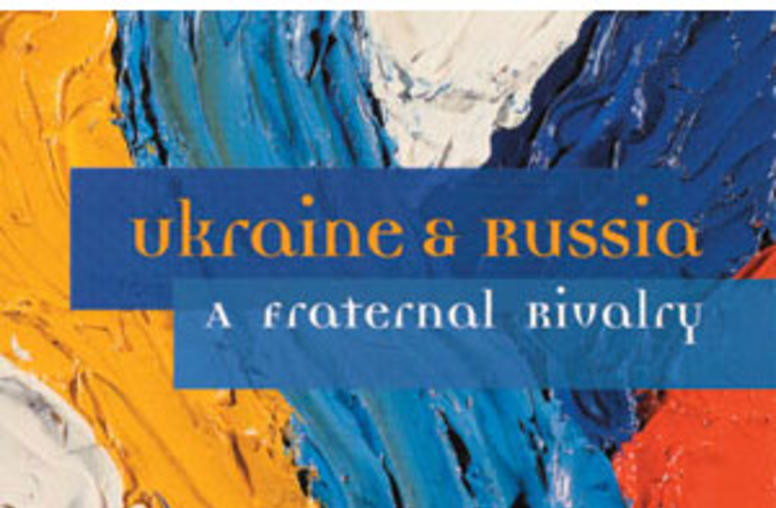
Ukraine and Russia
Journalist Anatol Lieven here explores the complex ethnic and political relationship of Ukraine and Russia. Based on extensive interviews, Lieven provides a fascinating portrait of the diversity that is contemporary Ukraine and of its efforts to forge a national identity after three centuries of Russian rule.
Preventing Violent International Conflict
This guide from the 1999 National Peace Essay Contest uses case studies from Poland in 1815 and Czechoslovakia in 1938 to examine the effectiveness of the international diplomacy in preventing violent international crises. It also contains a review of basic concepts and bibliographic materials.
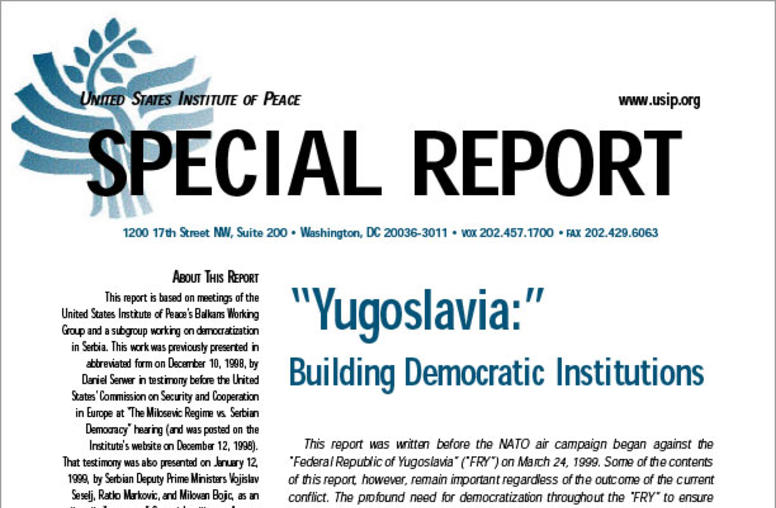
"Yugoslavia": Building Democratic Institutions
This report was written before the NATO air campaign began against the "Federal Republic of Yugoslavia" ("FRY") on March 24, 1999. Some of the contents of this report, however, remain important regardless of the outcome of the current conflict. The profound need for democratization throughout the "FRY" to ensure long-term stability in the region has been made clearer in these past few weeks. Summary The possibility of finding solutions to the "Federal Republic of Yugoslavia's" long...
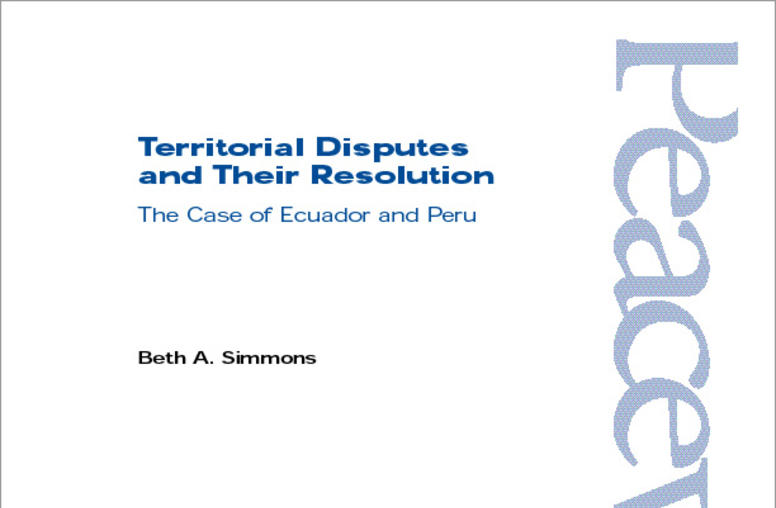
Territorial Disputes and Their Resolution: The Case of Ecuador and Peru
After nearly six decades of sporadic warfare over a relatively small stretch of disputed border, Ecuador and Peru signed an accord on October 26, 1998, that provides a definitive settlement of the remaining issues in their ongoing border conflict. The accord may not spell the end to future territorial disputes in the region, but it is historic in that it involves many actors working over many decades to achieve a settlement to a long-standing dispute.
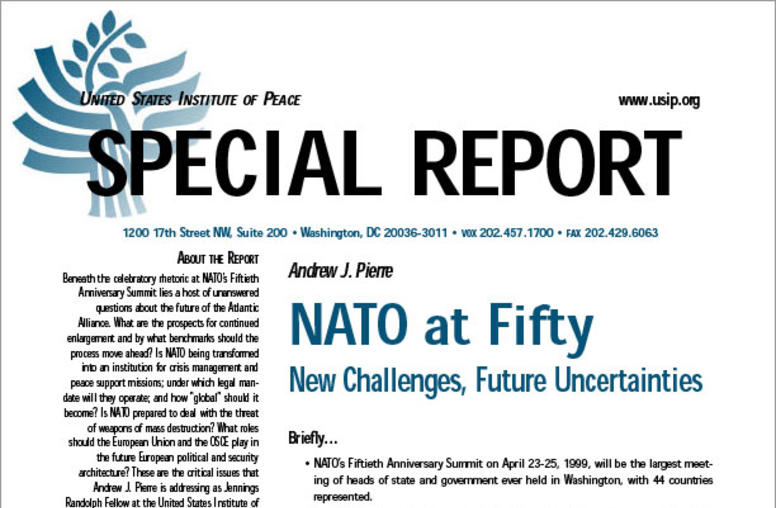
NATO at Fifty: New Challenges, Future Uncertainties
Summary NATO's Fiftieth Anniversary Summit on April 23-25, 1999, will be the largest meeting of heads of state and government ever held in Washington, with 44 countries represented. Despite promises of an "open door" to NATO membership and the expectation that a second tranche would be announced, none of the current nine "aspirants" are slated to be invited, nor will a date for the second round be announced.
Truth Commission: Rwanda 99
Truth Commission: National Unity and Reconciliation Commission Duration: 1999 – today (permanent since 2002) Charter: Law No. 03/99 Commissioners: 12 Report: Various public reports
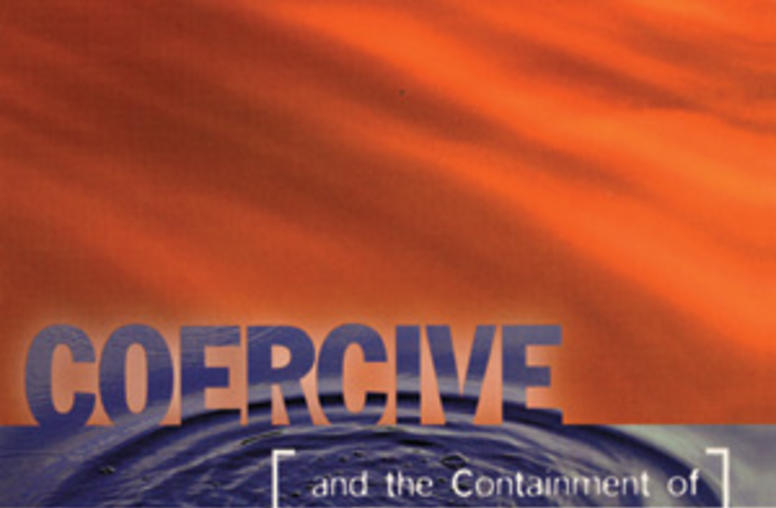
Coercive Inducement and the Containment of International Crises
The concept of a “middle ground” between simple peace enforcement and traditional peacekeeping by lightly armed observers has been both ill defined and controversial. But the authors of this thoughtful yet challenging volume make a strong case for both the practicability and the desirability of such operations
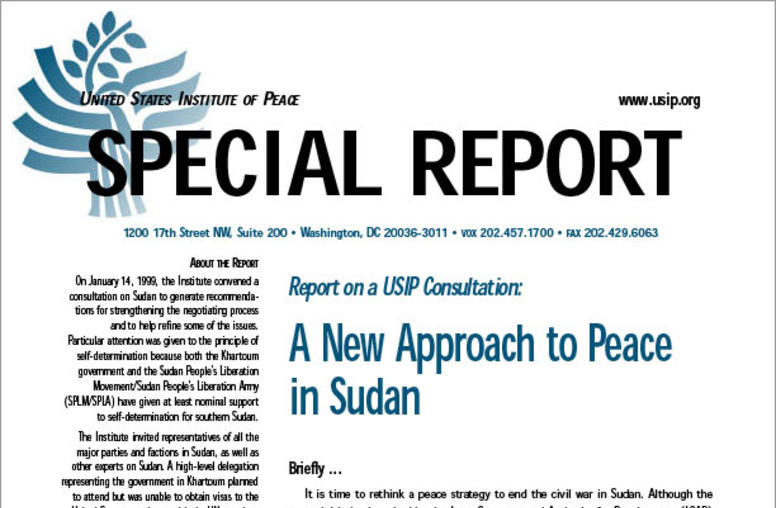
A New Approach to Peace in Sudan: Report on a USIP Consultation
Summary It is time to rethink a peace strategy to end the civil war in Sudan. Although the peace initiative launched by the Inter-Governmental Authority for Development (IGAD) in 1993 showed some initially promising results, the military situation is now stalemated, famine has plagued large sections of the South, and the IGAD mediation process has brought no recent results. The consultation concluded that: The IGAD process needs to remain the vehicle for mediation and negotiatio...
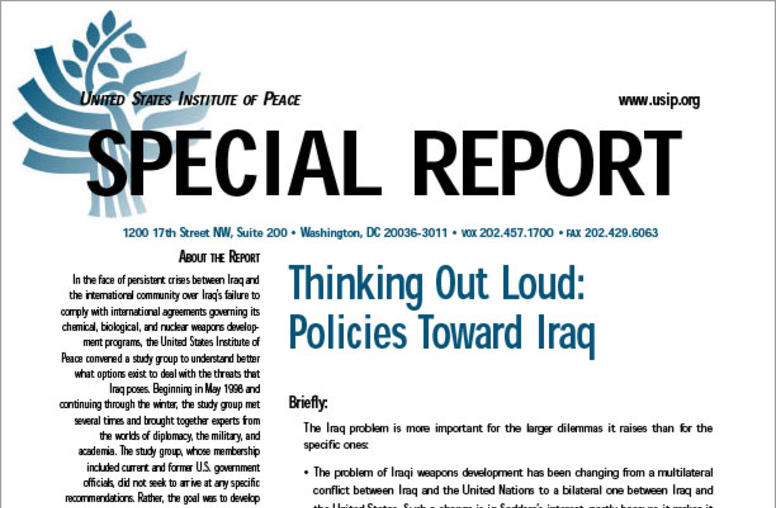
Thinking Out Loud: Policies Toward Iraq
In the face of persistent crises between Iraq and the international community over Iraq's failure to comply with international agreements governing its chemical, biological, and nuclear weapons development programs, the United States Institute of Peace convened a study group to understand better what options exist to deal with the threats that Iraq poses.